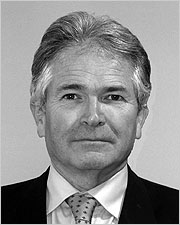One of the many benefits of mediation is that it is perfectly suited to the resolution of business disputes. Nowadays many businesses want to ensure that their contract is carried out but resolve inner contentions that may have arisen. A concern for such businesses will often be whether or not their trade secrets will be protected when opening disputes. The benefit of alternative dispute resolution methods such as mediation is that they offer the confidentiality that is not available in a court of law, making it an attractive alternative to litigation.
Why is confidentiality so important to mediators? As mediation takes place outside a court of law and without the legal oaths that bind judicial proceedings, formalities around confidentiality need to exist even more rigorously to ensure mediation is taken just as seriously (and equally trusted) as an effective and binding form of alternative dispute resolution. Formalities such as setting up ground rules at the start of the mediation process are vital for its ongoing success. Ground rules may outline a strict code of conduct that both parties should adhere to during the mediation, such as the tone with which they use to communicate with one another. Ground rules may also be useful for ensuring that confidentiality is upheld. In order to do this a mediator must consider how to handle potential media interest and the issue of third parties – the issue of third parties being whether or not third parties such as witnesses or experts should also be asked to sign separate confidentiality agreements, which is often advisable.
Standards that mediators should uphold are:
- The mediator is required to set out in writing from the outset how the mediation will be conducted.
- Both parties are free to withdraw if they do not agree with the mediation process, reinforcing the parties’ control of the mediation.
- It is common practice that mediators are asked to sign a statement declaring their impartiality.
- The mediator should withdraw if he or she discovers any reason why they cannot act impartially.
- Once the mediation is over it is the mediator’s duty to render anonymous all identifying information. That is to say that when materials emanating from a dispute are used for research, supervision, or training purposes, the mediator should remove all identifying information such as addresses, phone numbers or company names from them.
Clearly communicating to both parties at the start of the mediation process that it is bound by confidentiality is essential in establishing trust at the start of the process, and actively encouraging disputing parties to speak freely and openly as the mediation gets underway. All parties and participants in mediation need to feel fully confident that they can divulge confidential information without the fear of it compromising their case or of the information being leaked or shared publically. Participants or parties who feel reassured that their private information or opinions will go no further will be more likely to enter into a collaborative, creative and open discourse with the other disputing party, and ultimately a settlement is more likely to be reached this way.
Confidentiality is a virtue of the loyal, as loyalty is the virtue of faithfulness”
Edwin Louis Cole
The ICC (International Chamber of Commerce) states with regards to confidentiality:
In the absence of any agreement of the parties to the contrary and unless prohibited by applicable law: the Proceedings, but not the fact that they are taking place, have taken place or will take place, are private and confidential.
The 2008 EU mediation Directive, rules with which the UK complies, states that “Confidentiality in the mediation process is important and this Directive should therefore provide for a minimum degree of compatibility of civil procedural rules with regard to how to protect the confidentiality of mediation in any subsequent civil and commercial judicial proceedings or arbitration.“
There are, of course, exceptions that require the seal of confidentiality to be broken, the directive outlines these to be: ‘when [the mediator is] required to ensure the protection of the best interests of children or to prevent harm to the physical or psychological integrity of a person’ or where: ‘disclosure of the content of the agreement resulting from mediation is necessary in order to implement or enforce that agreement’. This latter point refers to instances in which the aggrieved party refuses to accept the mediator’s decision and the dispute is subsequently referred to court.
But while certain regulations and standards of conduct do protect the confidentiality of the mediation process and any information or opinions divulged in the course of it, it is also the mediator’s job to use his or her professional training, mediation experience and own personal characteristics and people skills to communicate the importance of, and guaranteeing of, confidentiality. Building trust and ensuring parties feel a strong sense of security at the very start of the mediation process is the first essential step of any mediator’s job.
For directory of articles on mediation services please click here.
Expert Evidence is a professional firm concentrating on the four main areas of dispute resolution; acting as expert witnesses in financial litigation, mediation, arbitration and adjudication. The firm has a civil, criminal and international practice and has advised in many recent cases. Areas of specialisation include banking, lending, regulation, investment, and tax.
Ask a question about mediation services. We are here to help!
Disclaimer – Please confirm any of the above views with your solicitor. Expert Evidence takes no responsibility or provides any guarantee that the views above are correct for your particular case or jurisdiction.


















